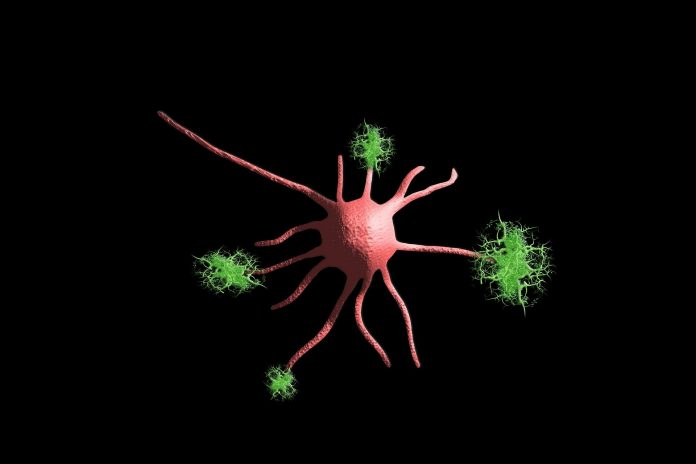Certain viruses can increase the chances of developing neurodegenerative diseases (NDDs).
New research has found evidence that viruses may increase susceptibility to diseases like Alzheimer’s, multiple sclerosis, Parkinson’s disease, generalized and vascular dementia, and amyotrophic lateral sclerosis (ALS).1
Neurodegenerative disease risk
Researchers searched a massive repository of health information scouring for data with reports of over 300 000 patients with current NDDs who were previously hospitalized due to a viral infection.2
The researchers found over 45 significant associations between viral infections and NDDs.2
Neurodegenerative diseases were linked to viruses such as viral encephalitis, influenza, and pneumonia; individuals previously infected by viral encephalitis were more likely to be diagnosed with Alzheimer’s.2
Influenza was the most prevalent viral infection, with significant results in five of the six NDDs studied.2
The virus with the most significant risk for neurodegenerative diseases was viral encephalitis and Alzheimer’s, while the association of dementia and influenza had moderate risk.2
Viruses and the neurodegenerative disease relationship
The relationship between viral infections and NDDs is likely due to the viruses triggering the immune system and preferentially attacking the nervous system.2
Once the viral proteins are in the central nervous system (CNS), significant inflammation in the brain and its communication and protective tissues occurs.
SARS-CoV-2 is one of three viruses that disrupt protein quality like protein accumulation and misfolding and progressively damage brain structure, function, and cognition 4,5
The inflammation also creates damage that can cause cell death or affect cell communication throughout the brain and nervous system.3,4
Generally, these effects are short-lived, but some viral infections can become chronic and impair the brain and CNS.
Neurodegenerative disease prevention
Studies suggest that monitoring risk factors and taking antiviral drugs may be one of the most viable options to prevent the risk of neurodegenerative diseases.2
Scientists have identified vaccination as one of the best preventative methods for developing NDDs due to viral infections.
Vaccines are currently available for several of the viruses, which can reduce the viral spread and the number of viral particles upon infection or prevent initial transmission.2
Despite the positive association between viral infections and neurodegenerative diseases, scientists have yet to determine if viral infections affect disease prognosis and if early age exposure to viruses correlates to NDD development.
Thankfully, the evidence does exist that vaccinations help prevent serious complications and hospitalizations so be sure to stay up-to-date with your vaccines.
References
- Could a viral illness increase chances of developing alzheimer’s or other neurodegenerative disease? National Institute on Aging. https://www.nia.nih.gov/news/could-viral-illness-increase-chances-developing-alzheimers-or-other-neurodegenerative-disease. Published January 19, 2023.
- Levine K, Leonard H L, Blauwendraat C, Iwaki H, Johnson N, Bandres-Ciga S, Koroshetz W, Ferrucci L, Faghri F, Singleton AB & Nalls MA. (2022). Virus exposure and neurodegenerative disease risk across national biobanks. BMJ. https://doi.org/10.1101/2022.07.08.22277373
- Sousa IP & Ramos Goncalves Vieira TC. (2023). Enterovirus infection and its relationship with neurodegenerative diseases. Mem Inst Oswaldo Cruz, 118. https://doi.org/10.1590/0074-02760220252
- Röme C. (2021). Viruses and endogenous retroviruses as roots for neuroinflammation and neurodegenerative diseases. Frontiers in Neuroscience, 15. https://doi.org/10.3389/fnins.2021.648629
- Leblanc P, Vorberg IM (2022) Viruses in neurodegenerative diseases: More than just suspects in crimes. PLoS Pathog 18(8): e1010670. https://doi.org/10.1371/journal.ppat.1010670



